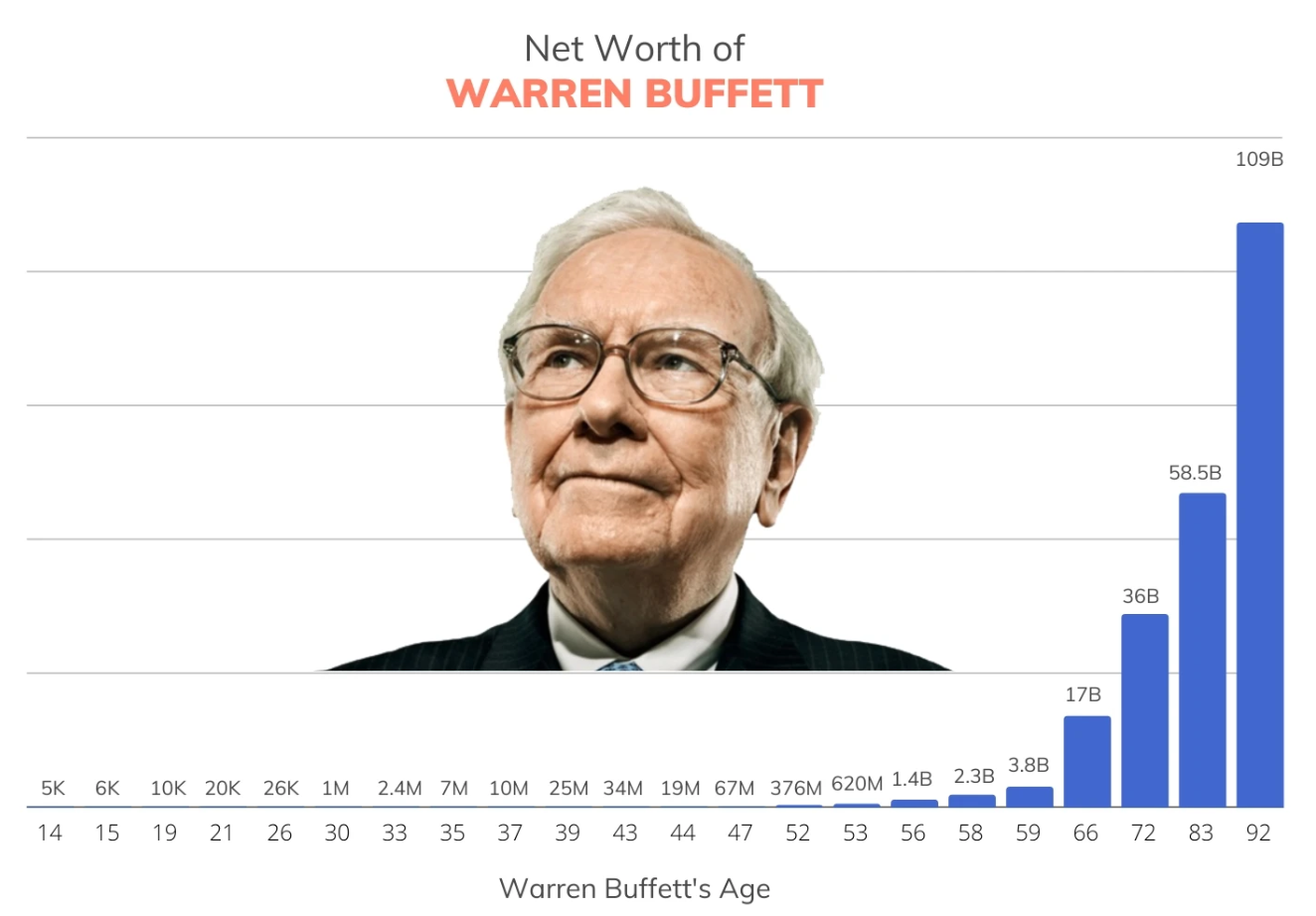The one big secret to Warren Buffett’s success that rarely gets a mention
We’re now a month on from Warren Buffet’s retirement announcement.
Enough time for everyone to cobble together their own hagiographies to the world’s greatest investor, or churn out yet another “5 ways you can invest like Warren Buffett” crowd-pleaser.
While Buffett’s billions are likely out of reach for most investors either way, there’s one key lesson that seems to get lost in the noise of investors scrambling over one another to profess the Oracle of Omaha’s genius.
One of Buffett’s biggest, and least-discussed, advantages is that he has simply been playing the game for longer than most of us can reasonably expect to.
At the modest age of 94, he’s taken the “time in the market” maxim to the extreme.
Buffett bought his first stock at the age of 11, which means he’s now been an active market participant for longer than the average life expectancy of an American born in 2025.
And that’s something that’s a lot harder to replicate than his much-celebrated investments in little-known market gems like… Coca-Cola, Bank of America and Apple.
So if you’re 24, 34, 44 or even 54, not only is it prima facie ridiculous to compare yourself to the world’s most successful investor anyway, you’re also operating at a huge handicap.
Buffett himself didn’t become a billionaire until his mid-50s and famously generated more than 99% of his current wealth after that age.
That’s the power of compounding returns, dialled up to 11 by Buffett’s unmatched market prowess and the other hard-to-replicate advantages he’s had over the years.
What also helped was that many of his best years came early in his career, which supercharged his growth.

But while you’re unlikely to match Buffett’s performance either in terms of percentage return or net wealth, you can still benefit from his secret weapon.
Say a 24-year-old investor puts $10,000 into an index ETF and doesn’t touch it again until he reaches Buffett’s current age.
Passively investing in broad stock index funds has historically returned around 10% p.a., which means your wealth doubles every seven years or so.
That single $10,000 investment alone would be worth approximately $7.9 million (before inflation) by the time our young investor reached the age of 94.
That’s a return of 790x.
If we apply an average inflation rate of 3% during that period, the inflation-adjusted return is still $1 million.
And that’s ignoring the 24-year-old’s ability to earn and invest more over that period, or that they may actually be able to beat the average stock market return over that time.
Suddenly Buffett’s achievements appear mortal again.
So what’s the lesson here? Finally start using that gym membership, eat healthier or devote yourself to other longevity hacks? That’s probably not a bad idea anyway.
But the real takeaway from Buffett’s career is the power of compounding returns.
And that’s something anyone can benefit from.
3 topics

